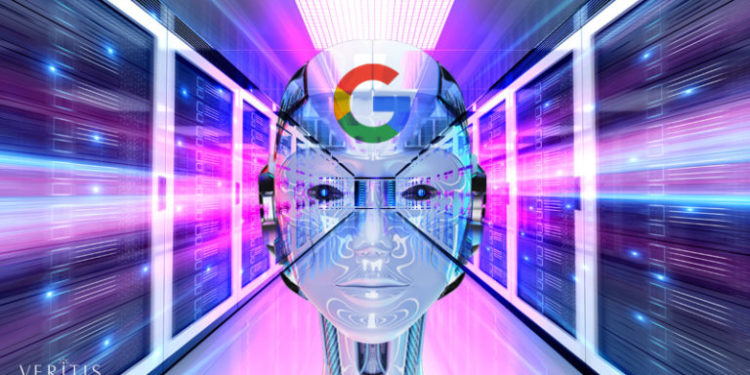For decades, Google has set the standard for search engine technology, optimizing algorithms to deliver fast and accurate results to billions of queries daily. Its comprehensive index and complex ranking system have made it the go-to source for information across the globe. However, the rise of AI technologies is beginning to shift the paradigm, introducing new capabilities that could enhance the search experience in unprecedented ways.
Introduction of OpenAI as a Competitor
Enter OpenAI, an AI research lab that has made significant headlines with innovations that push the boundaries of machine learning and artificial intelligence. OpenAI’s projects, such as GPT and DALL-E, have not only captivated the tech world but have also started to hint at practical applications that could directly compete with traditional search engines. OpenAI’s approach, which leverages sophisticated AI models to understand and generate human-like text, offers a new type of search engine—one that understands context, nuance, and even the intent behind users’ queries.
OpenAI has distinguished itself in the tech community through its significant contributions to the field of artificial intelligence. Among its many projects, the Generative Pre-trained Transformer (GPT) models have garnered substantial attention for their ability to understand and generate human-like text based on the inputs they receive. This section explores the core technologies behind OpenAI, focusing on how they are poised to transform the search engine landscape.
Overview of OpenAI’s Capabilities
OpenAI’s suite of AI models demonstrates advanced capabilities in processing and generating language. These models are trained on diverse internet text and can perform a variety of language tasks, from translation and summarization to question answering and text completion. This versatility is central to their potential use as search engines, where understanding context and user intent is crucial.
GPT and DALL-E: Breakthroughs in AI
- GPT (Generative Pre-trained Transformer): GPT models are particularly notable for their deep learning algorithms that predict the next word in a sentence, given all the previous words. This ability allows them to generate coherent and contextually relevant text passages based on the prompts they receive. For search engines, this means potentially answering queries with full sentences or paragraphs that synthesize information in a way that is highly relevant and tailored to the user’s intent.
- DALL-E: While not directly related to search, DALL-E’s capability to generate images from textual descriptions showcases the creative potential of OpenAI’s technology. It demonstrates the lab’s broader capabilities in understanding and generating content, whether textual or visual, based on complex inputs.
These innovations reflect a significant shift from keyword-based search to a more intuitive, conversational, and context-aware interaction model. By leveraging these AI technologies, a search engine could theoretically provide more accurate and nuanced answers, anticipate user needs, and offer a more dynamic interaction paradigm than currently possible with traditional search engines.
Potential for Search Applications
The implications of GPT for search are profound. Instead of merely matching keywords, an AI-driven search engine could understand the nuances of language, making connections and inferences that deliver richer and more accurate results. For instance, it could differentiate between the intent behind searches for “Apple,” distinguishing between queries about the fruit and the technology company based on contextual clues.
As OpenAI continues to develop its AI-driven search capabilities, it’s important to examine how these innovations stack up against Google’s traditional search engine methodologies. This comparison sheds light on the potential advantages of AI in search and highlights areas where traditional methods may still hold sway.
Algorithmic Innovations vs. Traditional Search
Google’s search engine is built on complex algorithms that have been refined over decades. These algorithms rely heavily on keyword matching, backlinks, and other SEO factors to rank pages. Google’s strength lies in its vast index of the web and its ability to return highly relevant results quickly by analyzing these established signals.
In contrast, OpenAI’s approach with GPT and other AI models is based on understanding and generating human-like text. This AI-driven method focuses on context and user intent, potentially offering a more nuanced understanding of search queries. Unlike traditional search engines that return a list of links, AI-driven search tools could provide direct answers, summaries, or even conversational interactions that make information retrieval more intuitive and less time-consuming.
Potential Advantages of AI in Search
- Contextual Understanding: AI models like GPT can consider the broader context of a query, not just the keywords. This capability could lead to more accurate results that are aligned with the user’s actual intent.
- Personalization: AI can learn from individual user interactions over time, potentially offering personalized search experiences that improve with each use. This could make search results more relevant for each user, a significant leap from the one-size-fits-all approach of traditional search engines.
- Speed and Efficiency: AI can quickly generate text-based responses directly in the search interface, potentially reducing the need for users to visit multiple web pages to find the information they need.
Challenges for AI in Search
While the potential advantages are significant, there are also challenges to consider:
- Data Privacy: AI-driven search engines require access to vast amounts of data, raising concerns about privacy and data security. Ensuring user trust will be crucial for the adoption of AI-driven search tools.
- Complexity and Cost: Developing and maintaining advanced AI models like GPT is resource-intensive. Unlike traditional search algorithms, which are primarily based on indexing and link analysis, AI requires continuous training with large datasets, significant computing power, and expert oversight.
- Accuracy and Reliability: AI models can sometimes generate incorrect or nonsensical responses due to the limitations of their training data or inherent biases in the models. Ensuring the reliability of AI-generated answers is a significant challenge.
As OpenAI continues to innovate and push the boundaries of what AI can achieve in the search engine space, its entrance has started to ripple across the market, influencing user behavior and reshaping digital marketing strategies. This section examines the broader implications of OpenAI’s AI-driven search technologies on the market and how businesses and marketers are responding to these changes.
Shifts in User Behavior
The introduction of AI-driven search tools like those developed by OpenAI is beginning to alter how users interact with search engines. The traditional approach of sifting through pages of results is being challenged by more interactive, conversational AI interfaces that can understand queries in natural language and provide direct, comprehensive answers. This shift could lead to a change in user expectations, with a growing preference for quicker, more accurate responses that feel more like human interaction than a digital query.
- Increased Expectations for Accuracy and Relevance: Users may come to expect not only faster responses but also more contextually accurate and relevant information from their searches.
- Preference for Conversational Interfaces: As users become accustomed to interacting with AI that understands and responds in natural language, they might favor platforms that offer this kind of user experience.
Impact on Digital Marketing and SEO
The rise of AI in search also has significant implications for digital marketing and search engine optimization (SEO) strategies:
- New SEO Techniques: Traditional SEO has focused heavily on keywords, backlinks, and optimizing for Google’s algorithms. With AI-driven search engines, the focus may shift towards optimizing content for relevance and contextual accuracy, possibly requiring new SEO techniques and tools.
- Content Strategy Adaptations: Marketers might need to rethink content strategies to cater to AI’s nuances, focusing more on natural language and question-based content that AI systems can interpret and use effectively.
- Performance Metrics: The metrics used to measure SEO success might evolve. Engagement metrics, such as time spent interacting with AI or the relevancy of AI responses, could become as important as traditional metrics like page views and bounce rates.
Challenges and Opportunities for Businesses
The integration of AI into search engines presents both challenges and opportunities for businesses:
- Challenges: Keeping up with the pace of technological change and adapting marketing strategies accordingly can be daunting, especially for smaller businesses with limited resources.
- Opportunities: For those that can adapt, AI-driven search offers a chance to connect with audiences in new and more meaningful ways, enhancing brand loyalty and potentially driving more targeted traffic.
As OpenAI’s search technologies gain traction, they present a complex mix of challenges and opportunities that businesses, especially those invested in SEO and digital marketing, need to navigate. Understanding these factors is crucial for leveraging AI effectively and responsibly.
Technical and Ethical Challenges
1. Data Privacy and Security:
- AI-driven search engines process vast amounts of personal data to deliver tailored results. This raises significant concerns about data privacy and security, particularly regarding how data is collected, stored, and used. Ensuring user trust and compliance with data protection regulations like GDPR is crucial.
2. Ethical Considerations:
- The deployment of AI in search engines also brings up ethical issues, including bias in AI algorithms that can skew search results based on flawed data inputs. Addressing these biases and ensuring fair, unbiased search results is a significant challenge for AI developers.
3. Technical Complexity:
- Developing, maintaining, and scaling AI technologies like those OpenAI uses is technically complex and resource-intensive. These challenges include ensuring the AI understands various languages, dialects, and nuanced user intents accurately.
Opportunities for Innovation
1. Personalized Search Experiences:
- AI can analyze user behavior and preferences to deliver highly personalized search experiences. This personalization can lead to more effective search results, increasing user satisfaction and engagement.
2. Enhancing Accessibility:
- AI technologies have the potential to make search more accessible to people with disabilities. For example, voice-activated search can provide an easier way for visually impaired users to access information online.
3. New Business Models:
- The capabilities of AI open up new business models and revenue opportunities, particularly for companies that can leverage AI to enhance their products or services. For instance, businesses can develop AI-powered apps that provide specialized search services for specific industries.
Future Projections
Looking forward, the integration of AI into search engines is likely to continue at an accelerated pace, driven by both technological advancements and user demand for more sophisticated, intuitive search tools.
- Industry Adoption: More companies are expected to adopt AI-driven tools for search applications, not just in tech but across various sectors, including healthcare, finance, and education.
- Regulatory Impact: As AI becomes more prevalent in search and other applications, regulatory frameworks are likely to evolve to address the new challenges AI presents, shaping how AI is developed and used in the future.
- Advancements in AI Technology: Continuous improvements in AI will enhance its ability to understand and process human language, leading to even more sophisticated and accurate search engines.
Recap of Key Insights
- AI-Driven Innovations: OpenAI has introduced a new dimension to search capabilities, enabling a more intuitive, conversational interaction with technology. This move away from traditional keyword-based search engines towards AI-driven platforms promises to deliver more personalized, context-aware responses.
- Challenges and Opportunities: While the rise of AI-driven search engines offers exciting possibilities for enhanced user engagement and personalization, it also presents challenges, including concerns over data privacy, ethical issues related to algorithmic bias, and the technical complexities involved in developing AI technologies.
- Impact on SEO and Digital Marketing: The shift towards AI-driven search engines necessitates a reevaluation of SEO strategies. Businesses and marketers must adapt to optimize for AI’s nuances, focusing more on natural language content and user intent rather than traditional keyword stuffing.
The information for this article was provided but not written by Tom, the founder of Semrank, an SEO agency in Hertfordshire.











































































